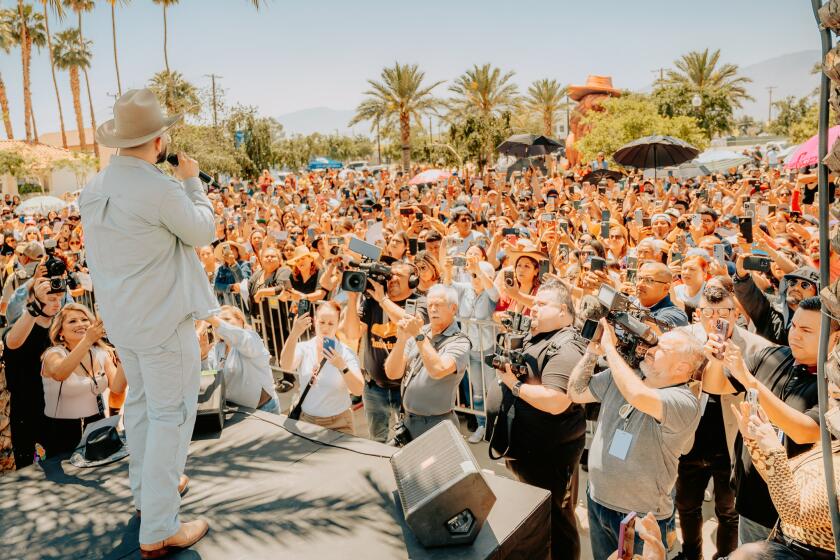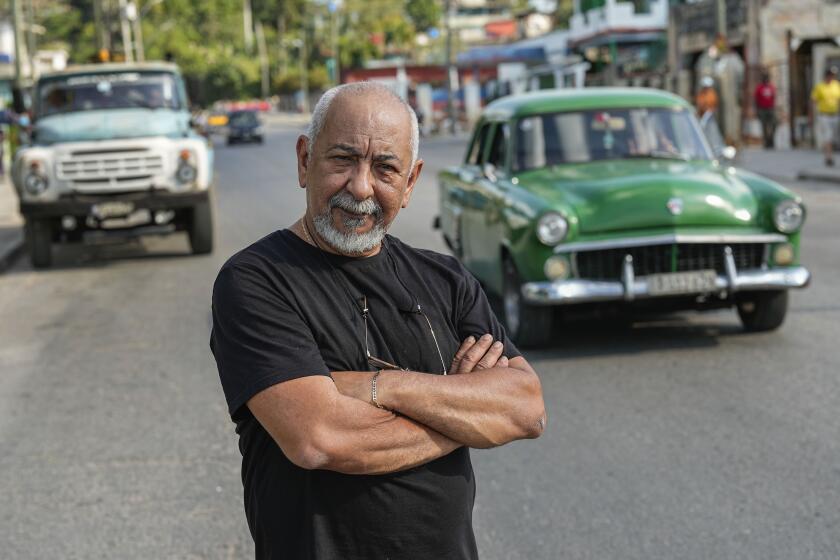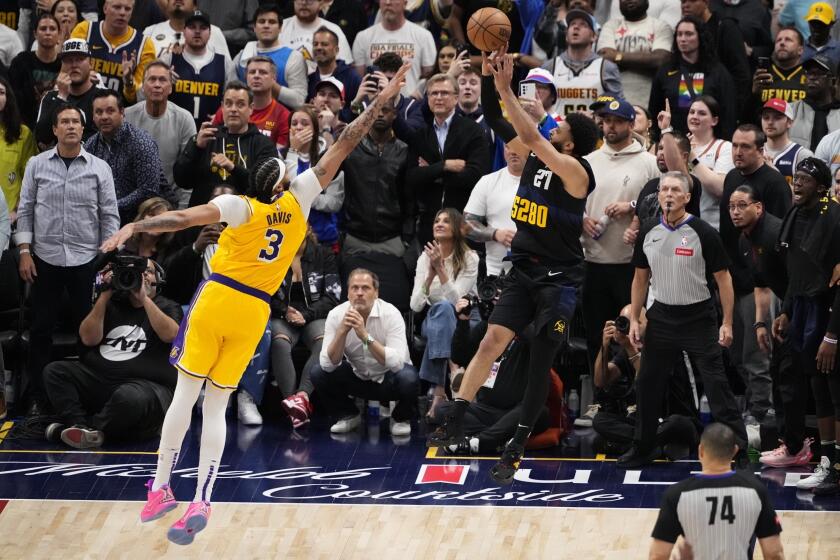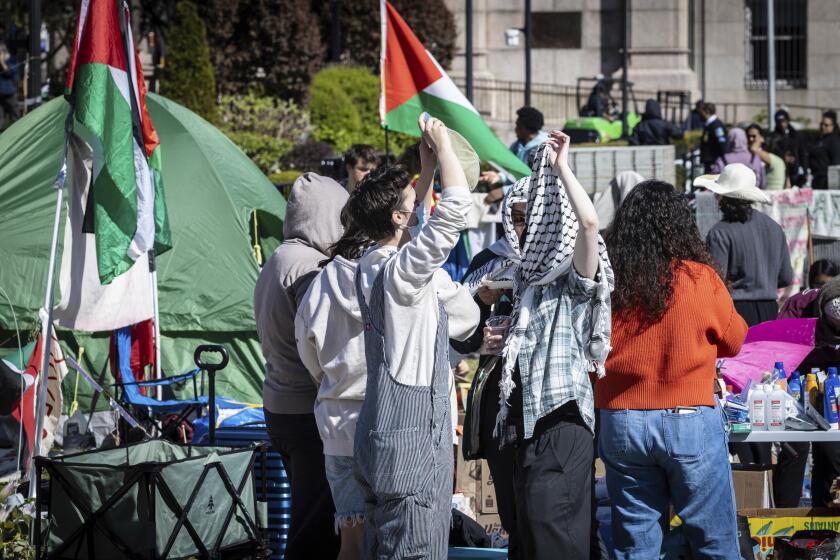On a day of power outages, Maduro and Guaido followers march in Caracas
Amid power outages around Venezuela that have continued since last Thursday, Chavista and opposition marches illustrated the country’s ongoing crisis.
The demonstrations in Caracas were led by President Nicolas Maduro and opposition leader Juan Guaido, both of whom saw the electricity failures as yet further proof that their opponents are the reason the situation in Venezuela gets worse every day.
Maduro said this Saturday that a new “cyberattack” had caused more power outages, after the situation had seemed to be under control following the previous outage at 5:00 pm last Thursday.
“We have been hit by a new international cyberattack” that has “knocked out the reconnection process,” Maduro told his supporters at the Miraflores presidential palace.
Maduro was addressing the hundreds of people who had just taken part in Saturday’s ruling party march in Caracas against “imperialism” and its “sabotage” of the electric system.
“On this occasion we found they were carrying out highly scientific, high technology attacks - electromagnetic attacks against electricity transmission lines,” the president said.
According to Maduro, the attack was executed using “technology at a level only possessed by the United States government.”
A breakdown of the country’s main hydroelectric power plant at Guri left all Venezuela without electricity last Thursday, amid the Maduro government’s complaints of “sabotage.”
The electric service was gradually restored in some areas by this Saturday morning, but around 12:00 pm there was another widespread power failure, about which the Maduro administration offered no explanation.
At the same time, the speaker of the Venezuelan legislature, Juan Guaido, recognized by some 50 countries as the acting president of Venezuela, told his followers after their march in Caracas that Maduro was responsible for the crisis in the electricity sector.
He said the power outage in some parts of the country has continued for 48 hours, and that 16 states were still without electricity.
Some reports said that several states, where power had been reestablished after more than 30 hours without electricity, suffered another outage around 12:00 pm this Saturday.
Starting on Friday, the service had gradually been restored in the eastern and central states of Venezuela, though more than half the country has gone 48 straight hours without electricity.
“It’s hard to say we’re doing well when children die in our hospitals (for lack of electricity), and when our indigenous people are being massacred. We know what a crisis we’re in and for that reason we have to keep fighting,” Guaido said.
He also warned that if the power outages continue, Venezuela could suffer a gasoline crisis.
But Maduro said the “attack” against the electric system was the work of the local opposition.
The Chavista leader also said that the Venezuelan electric industry, a public facility for years, must be liberated from “saboteurs trying to overthrow the government” and that new “imperialist attacks” must be prevented, a reference to the presumed aggression led by the United States.
Guaido, meanwhile, announced this Saturday that he will be taking a tour of the country and organizaing a giant rally in Caracas to assert his possession of the power held since 2013 by Maduro.
“Let all Venezuela come to Caracas, because we need everyone united. At this time I announce my tour of all Venezuela to bring everyone to Caracas to achieve our goal,” he told a gathering of followers in the southwestern part of the capital.
He promised to announce the date and time of his visits to the more than 20 federal states of Venezuela just hours before his arrival, to avoid the roads getting “jammed.”
“That’s when we will announce the date when we will all come together in Caracas to make use of our chance (to take power),” he said to the cries of thousands of people urging him to take over the Miraflores presidential palace.
Earlier in the day, an anti-riot squad tried to scatter the demonstrators with tear gas and cordons that impeded them from reaching Victoria Avenue, scene of this Saturday’s rally.
Guaido had to use a megaphone to address the thousands of people who had remained since the early hours at the rally area, after protesters weren’t allowed to install the platform from which he was to give his speech.
EFE observed that at least 200 members of the Bolivarian National Guard (GNB) blocked access to the Francisco Fajardo Motorway, which connects the east and west of the capital, and kept the crowds from two other demonstrations from making even larger the one led by the opposition leader.
The militarized police also deployed 12 armored cars which, however, were not used to repress the demonstration.
Venezuela has been going through a time of severe political tension since last January, when Guaido cited certain articles of the Venezuelan Constitution to claim the authority to declare himself interim president of the nation, on grounds that Maduro had “usurped” the presidency.
The Chavista leader first took office in 2013 and was reelected last May in a controversial election that the opposition boycotted because it did not trust the honesty of Venezuela’s current electoral system, with the result that the legitimacy of Maduro’s second term is not recognized either by anti-Chavismo or by much of the international community.



